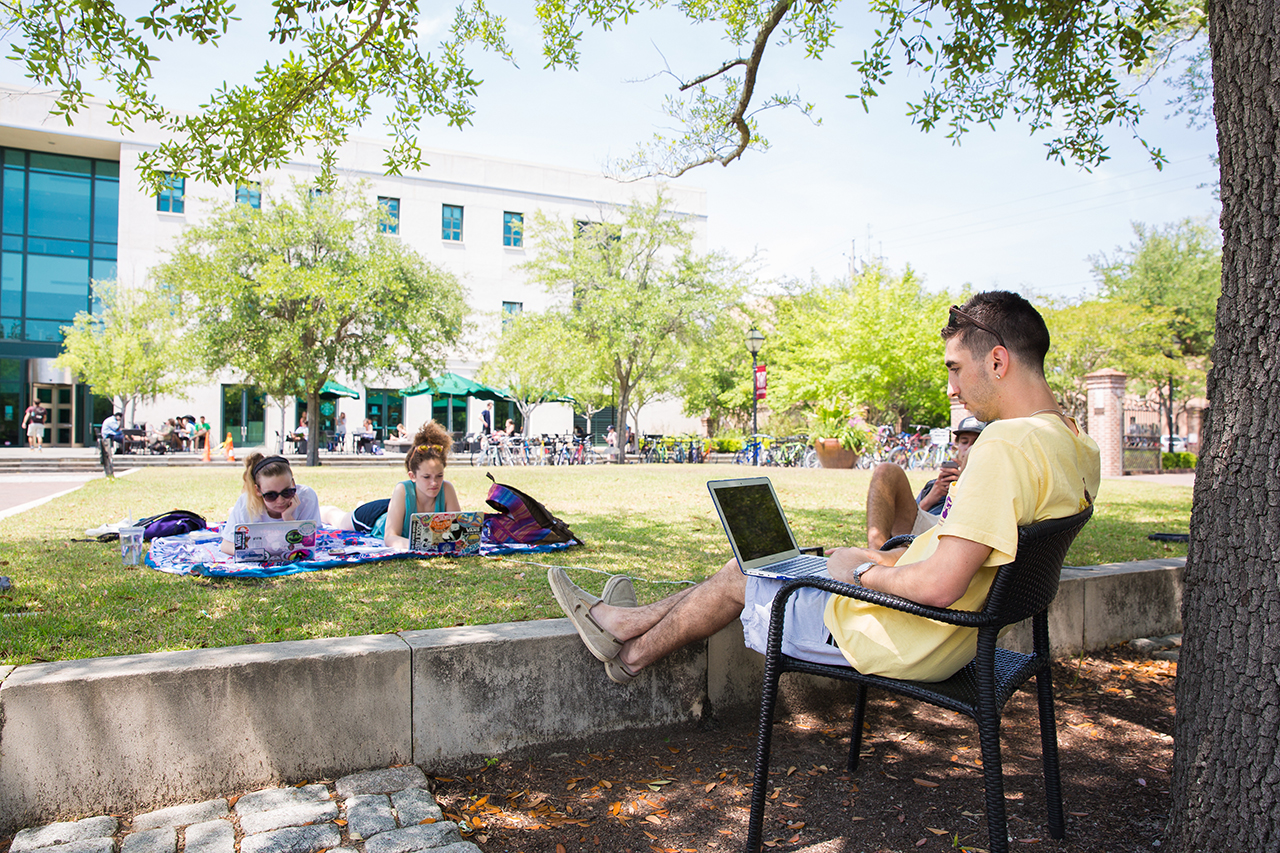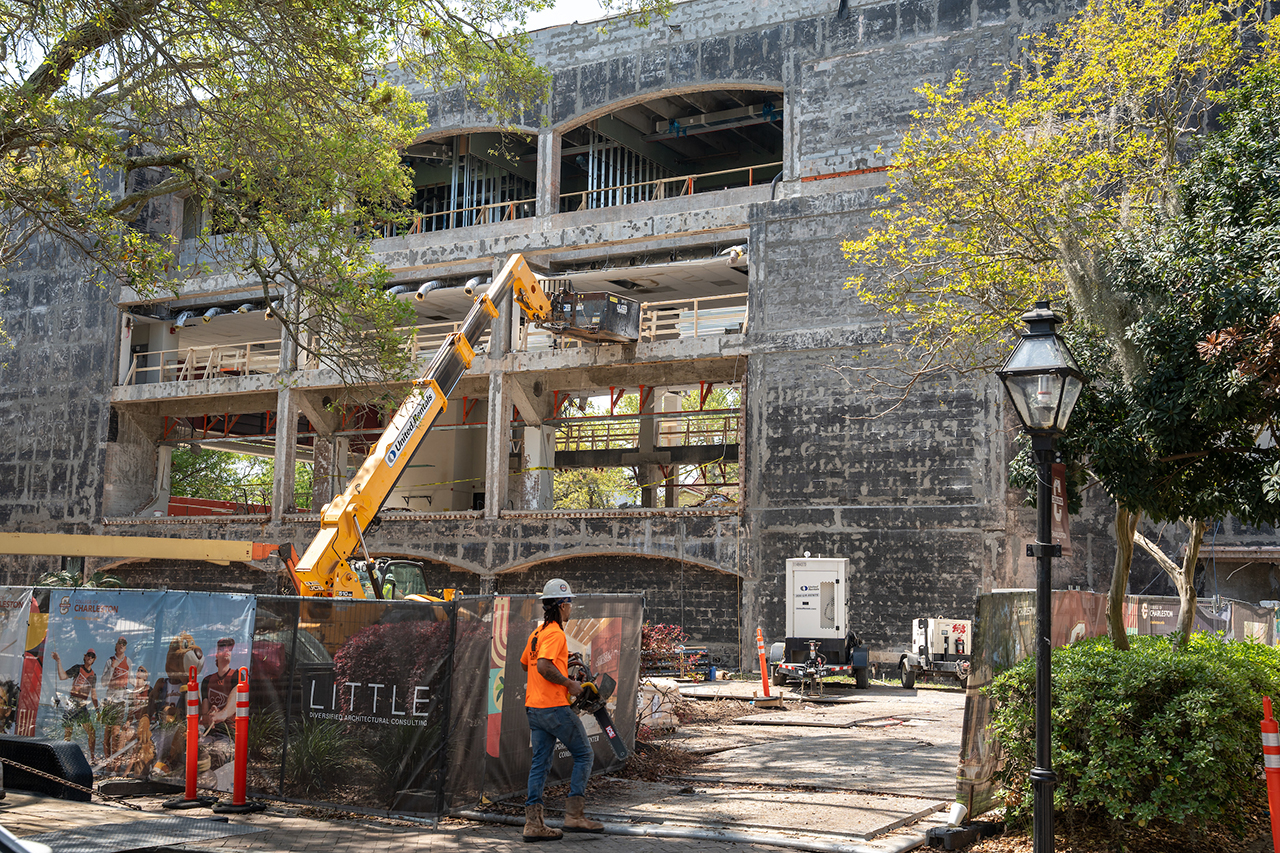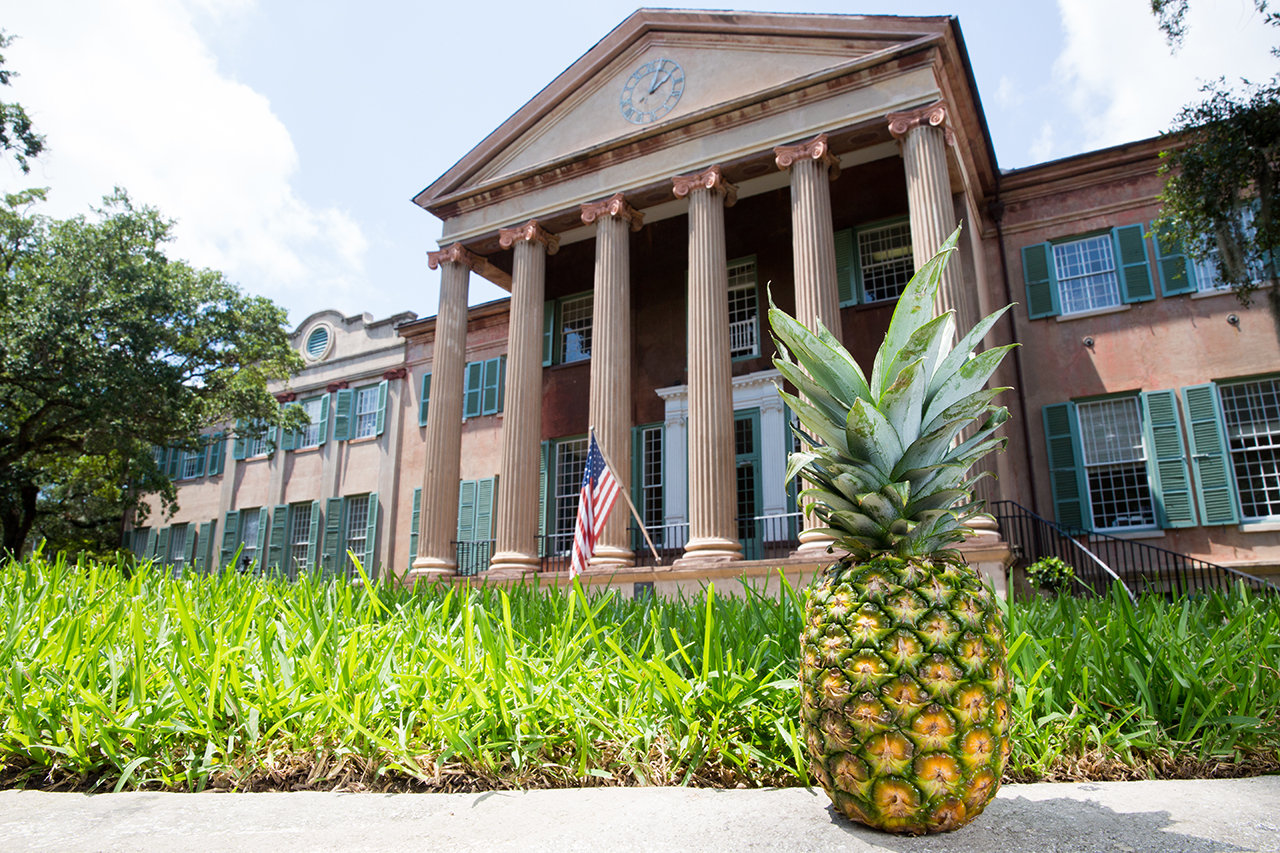CofC Professor Named African Literature Association President
Simon Lewis, professor of English, recently assumed the mantle of president of the African Literature Association – a position for which he’s uniquely qualified.
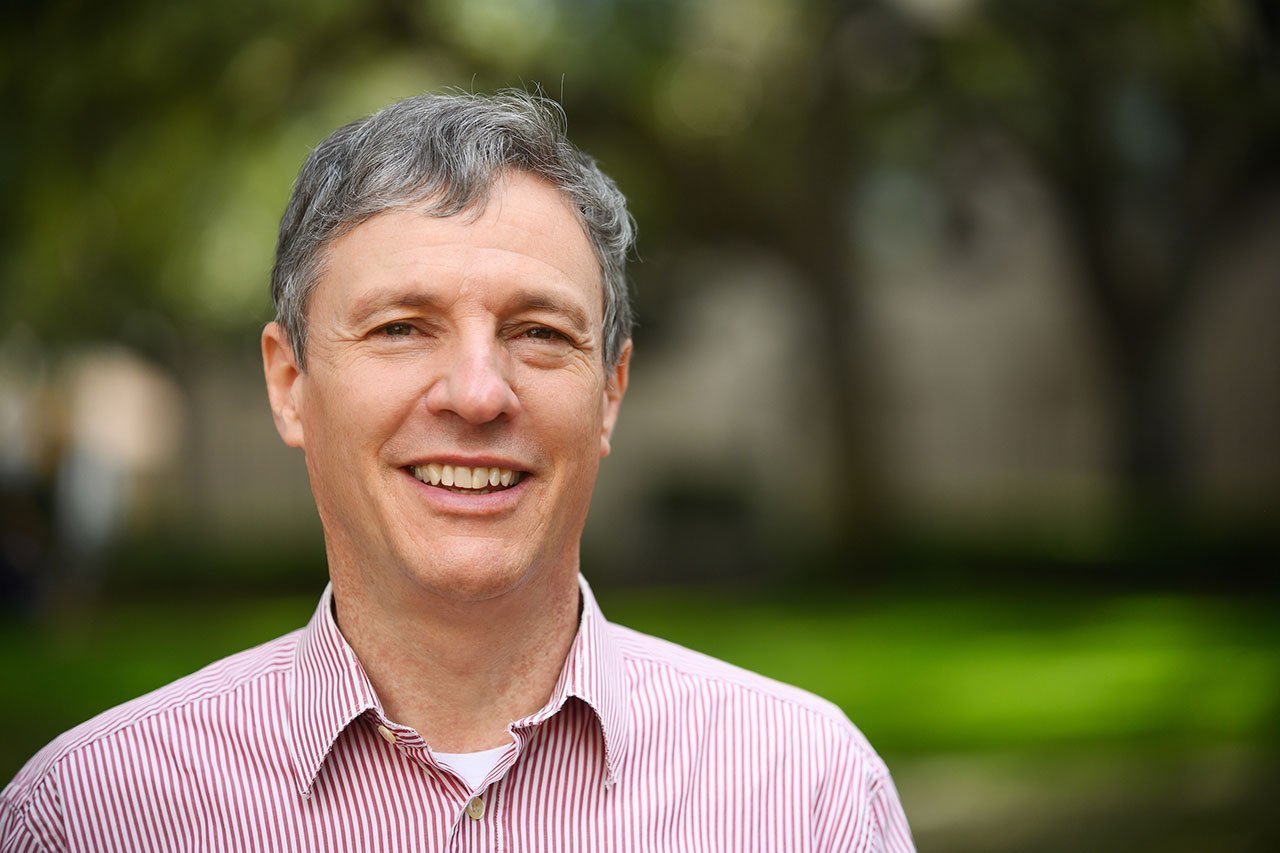
For Simon Lewis, professor of English, the African Literature Association has been a place of inspiration and an avenue for him to grow as an African literature specialist. Interacting with African writers whose storytelling often has an activist slant, also gave Lewis hope for a better world.
When Lewis walked into his first ALA conference in 1997, he knew he’d found his people. He expected a highly stressful atmosphere, like he experienced at the only other conference he had attended, and was pleasantly surprised to find a collaborative, collegial, inclusive and welcoming environment.
The ALA vibe made complete sense when Lewis discovered that the organization’s co-founder and first president was Dennis Brutus, the South African poet and activist who had connected him with writers to compile the content for his special South African issue of Illuminations: An International Magazine of Contemporary Writing. Lewis admired Brutus’ spirit and determination to create a better world and his use of poetry to share the reality of the present while dreaming of a brighter future.
Thrilled to have a network of people passionate about African literature, and a positive, supportive venue in which to hone his expertise, Lewis became an active member of the ALA, including service on its executive council.
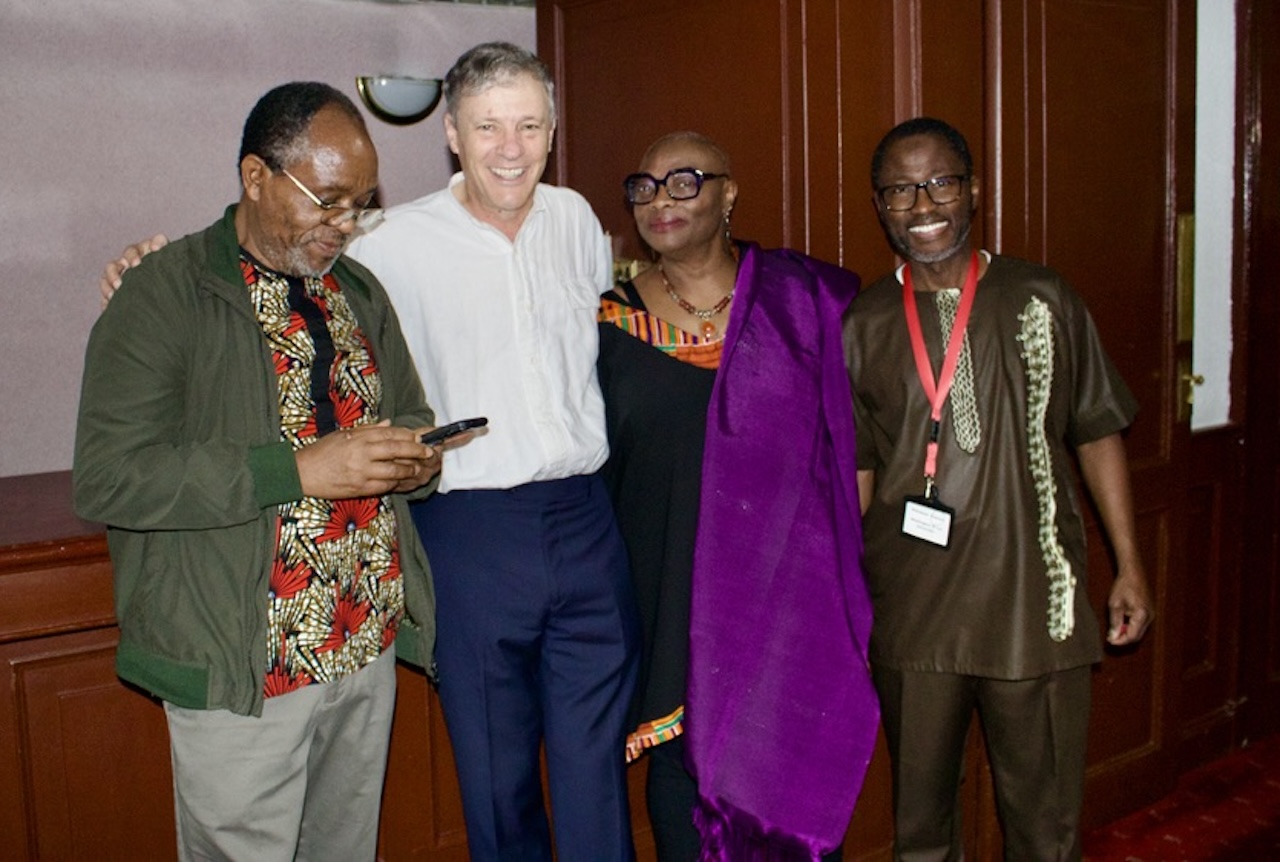
“Simon would be the first to tell you how much the ALA has given him,” says past ALA president Mohamed Kamara, head of the Department of Romance Languages and the H. Laurent Boetsch, Jr. Term Professor of Romance Languages at Washington and Lee University. “What he would not do is tell you how much the association owes him. Since attending his first ALA conference in 1997, Simon has kept a constant, dedicated and active presence in the association, as manifested in so many contributions he has made to our beloved association.”
For Lewis, although he hadn’t realized it at the time, ALA was what he had been building toward since he first developed a passion for Africa and African literature.
Lewis’ family moved from England to South Africa when he was a child, opening a completely new world. He saw the wonder and beauty of the country along with the ravages of apartheid. When his family returned to England, Lewis’ passion for the country remained, and he relied on poetry and literature to bring South Africa alive.
Lewis earned his undergraduate degree in English literature from Worcester College in Oxford, England. He then worked for nine years as a high school English teacher in England and at an international school in Tanzania, which fueled his interest in African literature.
In 1996, after earning his Ph.D. from the University of Florida, Lewis joined the College of Charleston English Department. Living in Charleston gave Lewis insight into the Africanness of Charleston and its ties to the Atlantic World.
At the College, Lewis continued as the editor of the literary magazine Illuminations and became a strong proponent of the College’s Program in the Carolina Lowcountry and the Atlantic World, which focuses on the connections between the two areas. Through CLAW, with the goal of helping people see issues from different angles, Lewis brought thought-provoking topics on African and African American history to the forefront.
Once he established a strong network in Charleston, Lewis took the initiative to host the annual ALA conference in 2013 – a year with a multitude of anniversaries, including the 150th of the Emancipation Proclamation, the 50th of the desegregation of Charleston County schools and of the rough midpoint of African decolonization in the 1960s.
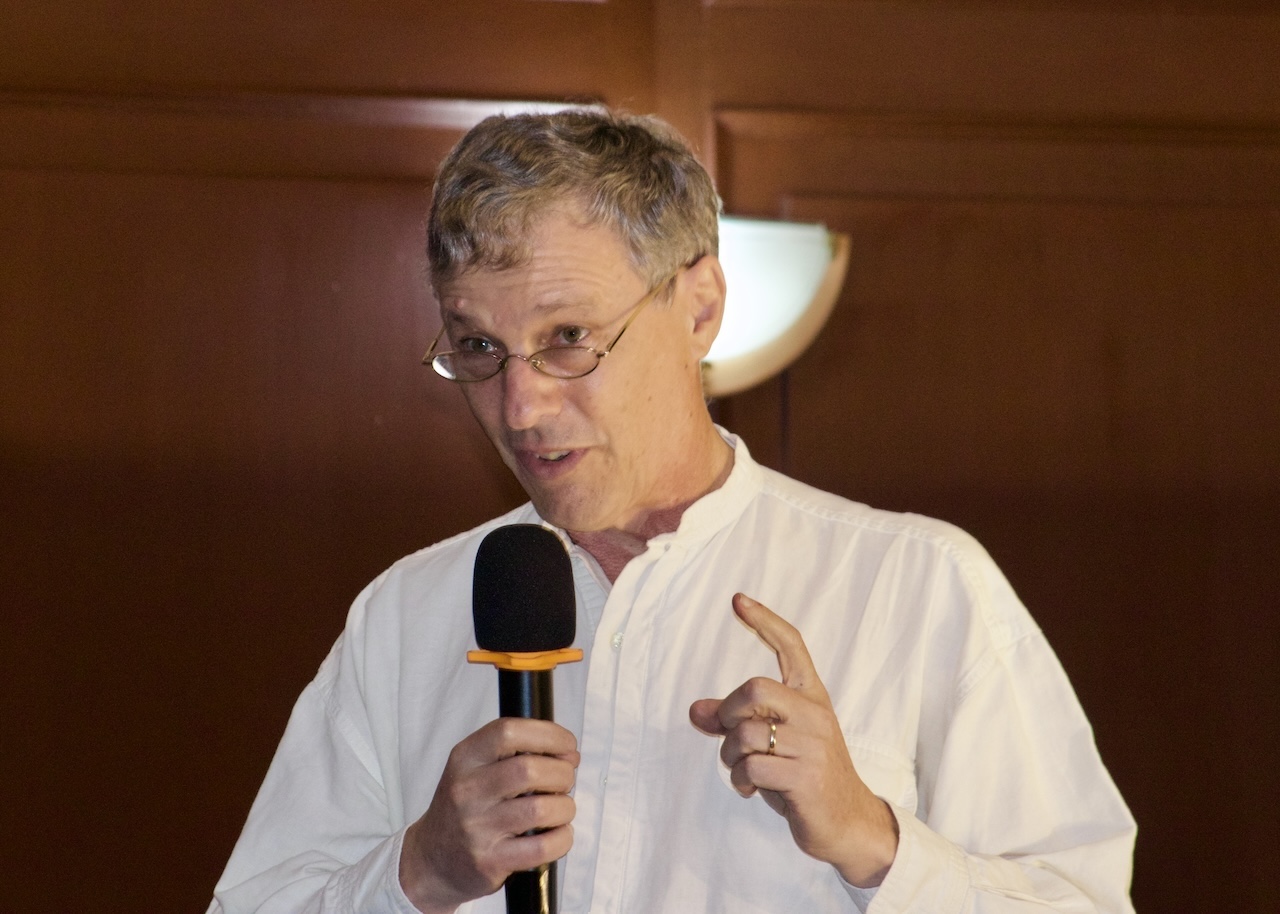
The conference was a spectacular success with amazing writers and speakers and a remarkable ceremony honoring those who died on the Middle Passage along the Ashley River. For Lewis, the conference also drove home Charleston’s Africanness. He recalls one attendee saying that the palm trees, lush greenery and wooden villas along Rutledge Avenue looked just like colonial West Africa. Another attendee, Idrissou Mora-Kpai, a filmmaker from Benin, was so inspired by the “birthplace of African America,” he went on to produce a film, America Street, that focused exclusively on the African American community of Charleston’s East Side.
It was, “arguably one of the best and most memorable conferences in the association’s 50-year history,” says Kamara. “A true gift of love from Simon to the association!”
Twelve years after hosting the impactful 2013 ALA conference, Lewis attended the 2025 conference in Nairobi, Kenya, to accept his new post as president of the association.
Ironically, the 2025 conference dovetailed with protests over the current Kenyan government, which began on June 25 — the day the conference began and the anniversary of the opposition to proposed tax increases. The protests took place around the country and started out peacefully but ended in violence. The frustration of the protesters harkened to the days when Brutus protested – and served as a reminder of the continued importance of the ALA.
As ALA president, Lewis is not only looking ahead, but also looking to Brutus for inspiration, who – despite mistreatment for raising his voice and pen about racial and economic injustice – never wavered in his faith for a brighter future.
“Despite the bleakness all around him, there is Dennis, not bemoaning the past, but looking to the future, transcending the limitations of present reality, dreaming a better world into existence,” he said in his incoming presidential address at the conference. “We don’t need to let present confusion or disappointment with things past discourage us or thwart our faith in the future.”
For the ALA, Lewis provides a lot of faith in the future.
“As the ALA celebrates its 50th year of edifying existence, the association needs a capable, compassionate and dedicated leader who will launch it into the next 50 years,” says Kamara. “A man of integrity with a strong sense of history and a keen appreciation for the role of associations like the ALA in building strong communities and a positive impact in the world. I am confident that Simon is that kind of leader.”
Another ALA past president, Moradewun Adejunmobi, concurs.
“Simon Lewis is known for being responsive and attentive to member concerns, pragmatic in always seeking practical and achievable solutions to pressing problems, forward looking in anticipating how we might respond to future challenges and always affable,” says the professor of African American and African studies at the University of California, Davis, adding that the 50th anniversary “is a moment for assessing the past and preparing for the next 50 years. At such a pivotal moment, we could not be happier to have someone like Simon Lewis at the helm of leadership.”

